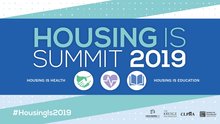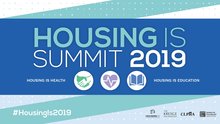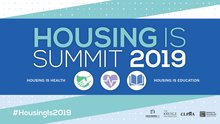Found 86 resources.
0
0
0

Social service programs are often looking for ways to assess and improve program design and implementation, and are increasingly using rapid learning methods to do so. In rapid learning cycles, programs try a new approach, see how well it works, make modifications to strengthen it, and then try it again. This brief illustrates how 10 fatherhood programs used learning cycles to evaluate one of three promising approaches to engaging men in their services, and the ways they used data in the learning cycle process to make decisions about the design and implementation of the approaches. Even...
Topics: Family engagement, Healthy homes, Research
 Shared by Sandra Ware
on Jun 8, 2023
Shared by Sandra Ware
on Jun 8, 2023 0
0
0

This document summarizes what was learned in SIRF (Strengthening the Implementation of Responsible Fatherhood Programs), which engaged 10 programs in using learning cycles—repeated periods of implementing ideas and reflecting on the results—to build evidence on practices to improve the enrollment, engagement, and retention of fathers in fatherhood programs.
Topics: Family engagement, Research
 Shared by Sandra Ware
on Jun 8, 2023
Shared by Sandra Ware
on Jun 8, 2023 0
0
0

In the newly released Stanford Social Innovation Review article, co-authors Jessica Mulcahy, Success Measures at NeighborWorks America; Vedette R. Gavin, Verge Impact Partners; and Stacey Barbas and Kate McLaughlin, The Kresge Foundation discuss their collaborative work on a three-year developmental evaluation to learn about the strategies and approaches grantees are using to advance health equity through housing. This article is part of the series “Collaboration for Housing Justice” sponsored by Funders for Housing and Opportunity to mark their fifth anniversary.
Topics: Community development, Health, Housing, Place-based, Racial inequalities, Research
 Shared by Camille Anoll-Hunter
on Dec 15, 2022
Shared by Camille Anoll-Hunter
on Dec 15, 2022 0
0
0
Approximately one in five adults reported experiencing household food insecurity in both spring 2020 and again in summer 2022, after a decline in reported food insecurity in spring 2021. High food price inflation, along with elevated costs for other basic needs, such as transportation and rent, have likely eroded food budgets in the last year. In addition, some of the safety net responses that buffered food insecurity in 2021 are no longer in place. In this brief, we use data from the Health Reform Monitoring Survey, a nationally representative survey of nonelderly adults, to assess food...
Topics: Food insecurity, Research, Stability
 Shared by Sandra Ware
on Oct 27, 2022
Shared by Sandra Ware
on Oct 27, 2022 0
0
0
The Vancouver Housing Authority collaborated with a Federally Qualified Health Center and a homeless crisis response system to develop a network of scattered-site and site-based supportive housing. This moderated discussion will cover how VHA paired Housing Choice Vouchers and public housing with a Medicaid-funded supportive housing benefit to serve people identified by the community’s Coordinated Entry as needing supportive housing. Speakers will also discuss the challenges faced through the process, model adjustments made, and evaluation of the work through matching housing data and...
Topics: Advocacy, CLPHA, Data sharing, Family engagement, Health, Healthy homes, Homelessness, Housing, Legislation & Policy, Low-income, Research, Stability, Sustainability
 Shared by Karina George
on Jun 17, 2022
Shared by Karina George
on Jun 17, 2022 0
0
0
CLPHA Housing Is Summit 2022: A Sustainable Approach to Addressing the Social Determinants of Health
The Columbus Metropolitan Housing Authority (CMHA) has formed a partnership with the Healthcare Collaborative of Greater Columbus (HCGC) and their Central Ohio Pathways HUB to provide supportive services to all 14,000 CMHA-assisted households. HCGC’s HUB is a nationally certified program focused on addressing the Social Determinants of Health in an effort to improve health outcomes for at-risk populations. The HUB oversees 10 Care Coordination Agencies (CCAs) and their employed Community Health Workers (CHWs) to provide these services. The HUB contracts with Medicaid Managed Care...
Topics: Advocacy, Community development, Housing, Partnerships, Racial inequalities, Research, Supportive housing, Sustainability
 Shared by Karina George
on Jun 17, 2022
Shared by Karina George
on Jun 17, 2022 1
0
0
The Administration for Community Living’s Aging and Disability Network is a multifaceted service infrastructure for older adults and people with disabilities so they can find housing and obtain services like chore assistance, delivered meals, and transportation. By partnering with this community infrastructure, PHAs can improve voucher utilization and leverage and align resources so older adults, people with disabilities, and people experiencing homelessness —all priority populations for federal housing assistance—can obtain supportive services needed to attain housing stability, optimize...
Topics: Advocacy, Community development, Disabilities, Health, Housing, Partnerships, Research, Seniors, Supportive housing, Sustainability
 Shared by Karina George
on Jun 17, 2022
Shared by Karina George
on Jun 17, 2022 0
0
0
Housing providers are uniquely positioned to find innovative and meaningful ways to engage residents with lived experience in program design and implementation to ensure investments are focused, efficient, and culturally appropriate. Learn how the King County Housing Authority in Washington and The Community Builders in Cincinnati, OH are responding to the needs and desires of their residents in new ways that leverage the assets and strengths of their residents to ensure that young children thrive. Attendees will leave this session with new ideas to incorporate resident input in early...
Topics: Advocacy, CLPHA, Education, Family engagement, Housing, Low-income, Research, Supportive housing, Sustainability
 Shared by Karina George
on Jun 17, 2022
Shared by Karina George
on Jun 17, 2022 0
0
0
This panel discussion will examine the results of efforts to significantly expand the reach of HUD’s Family Self-Sufficiency Program through partnerships between the nonprofit Compass Working Capital and the Boston and Cambridge Housing Authorities. Panelists will discuss their program model and its evaluation, how they have scaled up FSS, what results they have experienced to date, and where they plan to go from here. An FSS program participant will participate in the panel and share their perspective on how the program has benefitted them.
Topics: Advocacy, Asset building, CLPHA, Early childhood, Education, Housing, Legislation & Policy, Research, Supportive housing
 Shared by Karina George
on Jun 17, 2022
Shared by Karina George
on Jun 17, 2022 0
0
0
This session will review the extent to which local jurisdictions engaged with school districts in the 2016-17 Affirmatively Furthering Fair Housing (AFFH) process and preview the potential for PHAs to engage with school districts and school data in the upcoming renewal of the HUD AFFH process.
Topics: Advocacy, Attendance, CLPHA, Data sharing, Education, Family engagement, Housing, Legislation & Policy, Research, Sustainability
 Shared by Karina George
on Jun 17, 2022
Shared by Karina George
on Jun 17, 2022 0
0
0
Building off discussions during previous Summits, this panel will highlight research and promising practices on cash assistance for low-income individuals and families, including income supports stemming from the pandemic.
Topics: Advocacy, CLPHA, Funding, Housing, Legislation & Policy, Research
 Shared by Karina George
on Jun 17, 2022
Shared by Karina George
on Jun 17, 2022 0
0
0
State and local policymakers are making consequential decisions about the treatment of race and racism in schools. It is crucial, right now, to slow down, consider the evidence from research and experience, and apply that knowledge to improve teaching about race and racism.
Authored in partnership between the Aspen Institute Education & Society Program and Dr. Francesca López, Professor & Waterbury Chair of Equity Pedagogy at Penn State University, United We Learn looks at empirical research on teaching about race and racism, across more than 40 studies on child development,...
Topics: Education, Racial inequalities, Research
 Shared by Kirsten Greenwell
on Oct 22, 2021
Shared by Kirsten Greenwell
on Oct 22, 2021 0
0
0
Authored by Civic and the Everyone Graduates Center at the Johns Hopkins University School of Education, and released annually in partnership with the Alliance for Excellent Education and America’s Promise Alliance, the Building a Grad Nation report examines both progress and challenges toward reaching the GradNation campaign goal of a national on-time graduation rate of 90 percent.
Topics: Education, Low-income, Research, Youth
 Shared by Housing Is
on Jun 11, 2019
Shared by Housing Is
on Jun 11, 2019 0
0
0

This paper analyzes why SNAP benefits are inadequate, reviews the body of research showing positive effects from more adequate SNAP benefits, and offers key policy solutions to improve benefit adequacy.
Topics: Food insecurity, Health, Legislation & Policy, Low-income, Nutrition, Research
 Shared by Housing Is
on Jun 11, 2019
Shared by Housing Is
on Jun 11, 2019 0
0
0
On June 3, Governance Studies at Brookings cohosted an event with Contexts Magazine, featuring an expert panel that discussed the causes, consequences, and policy solutions to the racial wealth gap.
Topics: Racial inequalities, Research
 Shared by Housing Is
on Jun 11, 2019
Shared by Housing Is
on Jun 11, 2019 0
0
0
On May 20, the Brookings Metropolitan Policy Program and George Washington University’s Center for Washington Area Studies (CWAS) co-hosted an event to discuss housing growth and affordability in the Capital Region. The event started with the presentation of a new report by CWAS Director Leah Brooks. An expert panel discussed what local governments, developers, and affordable housing advocates can do to make sure the region meets the housing needs of all its residents.
Topics: East Coast, Housing, Legislation & Policy, Research
 Shared by Housing Is
on May 28, 2019
Shared by Housing Is
on May 28, 2019 0
0
0

With ever-growing interest in the intersection between housing and health, researchers are evaluating the impact of cross-sector interventions. This session will bring together researchers to share insights from their work relevant to practitioners and policymakers.
Topics: CLPHA, Health, Homelessness, Housing, Low-income, Partnerships, Research, Seniors
 Shared by Housing Is
on May 24, 2019
Shared by Housing Is
on May 24, 2019 0
0
0

Dr. Camara Jones, a Senior Fellow at Morehouse School of Medicine and a past president of the American Public Health Association, will discuss systemic, historical inequities that constrict the social safety net and ways cross-sector collaboration can help improve health outcomes, educational attainment, and housing stability.
Topics: Health, Housing, Racial inequalities, Research
 Shared by Housing Is
on May 24, 2019
Shared by Housing Is
on May 24, 2019 0
0
0

Recent research shows that place matters in economic mobility. Strong neighborhoods and community resources can have long-term impact on educational achievements and earnings. Building off of this research, David Williams from Opportunity Insights will discuss how PHAs are collaborating with researchers to develop and evaluate effective interventions for families with young children.
Topics: CLPHA, Mobility, Partnerships, Place-based, Research
 Shared by Housing Is
on May 24, 2019
Shared by Housing Is
on May 24, 2019 0
0
0

A landmark National Academies of Sciences report commissioned by Congress concludes that childhood poverty in the U.S. could be cut in half within a decade with appropriate action. The report culls through the existing evidence-base to identify the most impactful existing policies including the Earned Income Tax Credit (EITC) and housing assistance. This panel will also discuss promising new policies that if enacted could help reduce poverty such as the child allowance.
Topics: Child welfare, CLPHA, Housing, Legislation & Policy, Low-income, Partnerships, Research
 Shared by Housing Is
on May 24, 2019
Shared by Housing Is
on May 24, 2019 0
0
0
On May 9, the Brookings Institution hosted an event to discuss the subsequent report, “A Roadmap to Reducing Child Poverty.” The event featured comments from Greg Duncan, who served as Chair of the Committee on Building an Agenda to Reduce the Number of Children in Poverty by Half in 10 Years, as well as a panel discussion on the report, its recommendations, and barriers to implementation. A second panel highlighted national and state policy perspectives of the consensus study report.
Topics: Early childhood, Funding, Housing, Legislation & Policy, Low-income, Research, Youth
 Shared by Housing Is
on May 13, 2019
Shared by Housing Is
on May 13, 2019 0
0
0
Stable housing plays a vital role in people’s recovery from substance use disorders (SUDs). An inability to pay rent and the threat of losing housing can lead to stress that triggers substance misuse and relapse. People experiencing homelessness who also have SUDs typically find it difficult to address their substance use without a safe place to live, because they often use alcohol or drugs to cope with the dangers of life on the streets. In 2018, Congress passed the SUPPORT for Patients and Communities Act (known as the SUPPORT Act), which provided a variety of new programs and funding...
Topics: Homelessness, Housing, Legislation & Policy, Low-income, Mental health, Research, Substance abuse
 Shared by Housing Is
on May 2, 2019
Shared by Housing Is
on May 2, 2019 0
0
0
Focusing on traditional neighborhood measures such as disadvantage and segregation rarely reveals how specific policies, powerful decisionmakers, and institutions built on racial hierarchy generate and maintain racial health disparities. To help researchers, policymakers, and practitioners consider how best to recognize and incorporate structural racism in the study of place-based health disparities, this literature review highlights four lessons researchers can use to more directly study the connection between structural racism and health.
Topics: Health, Racial inequalities, Research
 Shared by Housing Is
on May 2, 2019
Shared by Housing Is
on May 2, 2019 0
0
0

Are you a Pennsylvanian without a high school diploma? Then sign up with AmeriHealth Caritas for Medicaid and the plan will help you get your GED. Having trouble getting a job in Ohio? If you are enrolled in CareSource, the Life Services JobConnect in CareSource’s managed care organization (MCO) will arrange job coaching and other employment services at no cost. These are not examples of corporate philanthropy. Rather, they reflect a growing recognition in the health care sector, especially among managed care organizations, that good health—and achieving lower medical costs—requires a focus...
Topics: Education, Food insecurity, Health, Housing, Low-income, Nutrition, Research
 Shared by Housing Is
on Apr 25, 2019
Shared by Housing Is
on Apr 25, 2019 0
0
0

The Centers for Medicare and Medicaid Services (CMS) and states spend over $300 billion per year on the care of dually eligible individuals, yet still do not achieve acceptable health outcomes. In a 2016 study of social risk factors in the Medicare value-based purchasing programs, dual enrollment status was the most powerful predictor of poor outcomes. For example, relative to Medicare-only beneficiaries, dually eligible individuals had 10-31 percent higher risk-adjusted odds of hospital readmission across conditions measured in the Hospital Readmissions Reduction Program, and scores were...
Topics: Dual-eligibles, Funding, Health, Low-income, Medicaid / Medicare, Research, Seniors
 Shared by Housing Is
on Apr 24, 2019
Shared by Housing Is
on Apr 24, 2019 